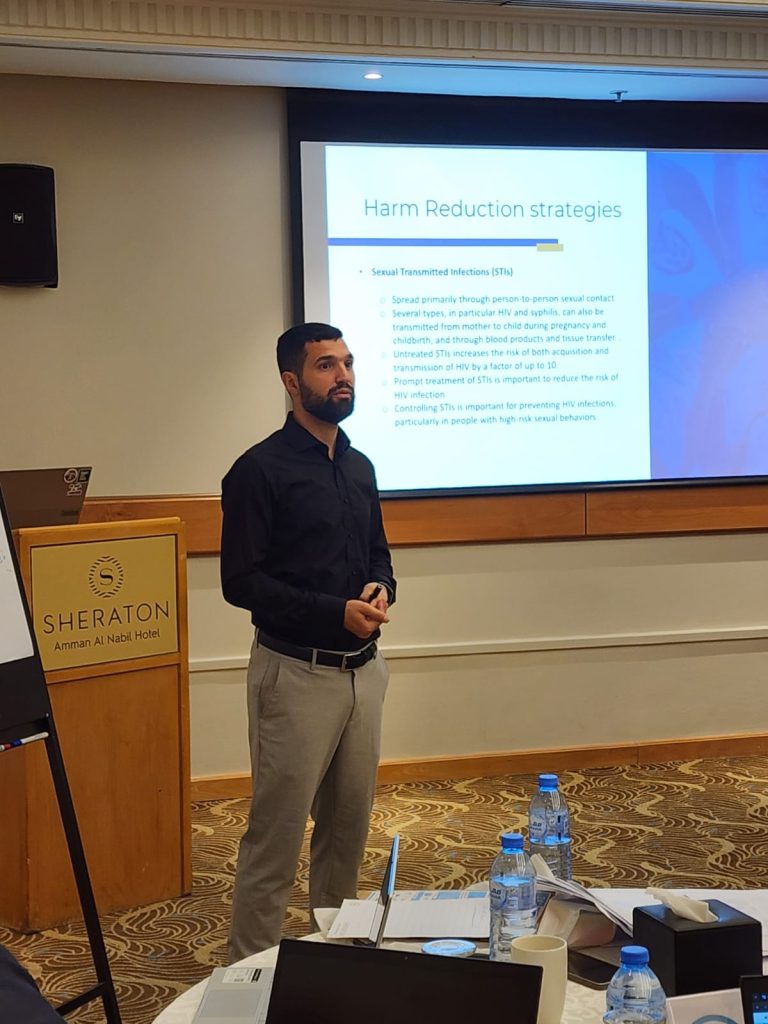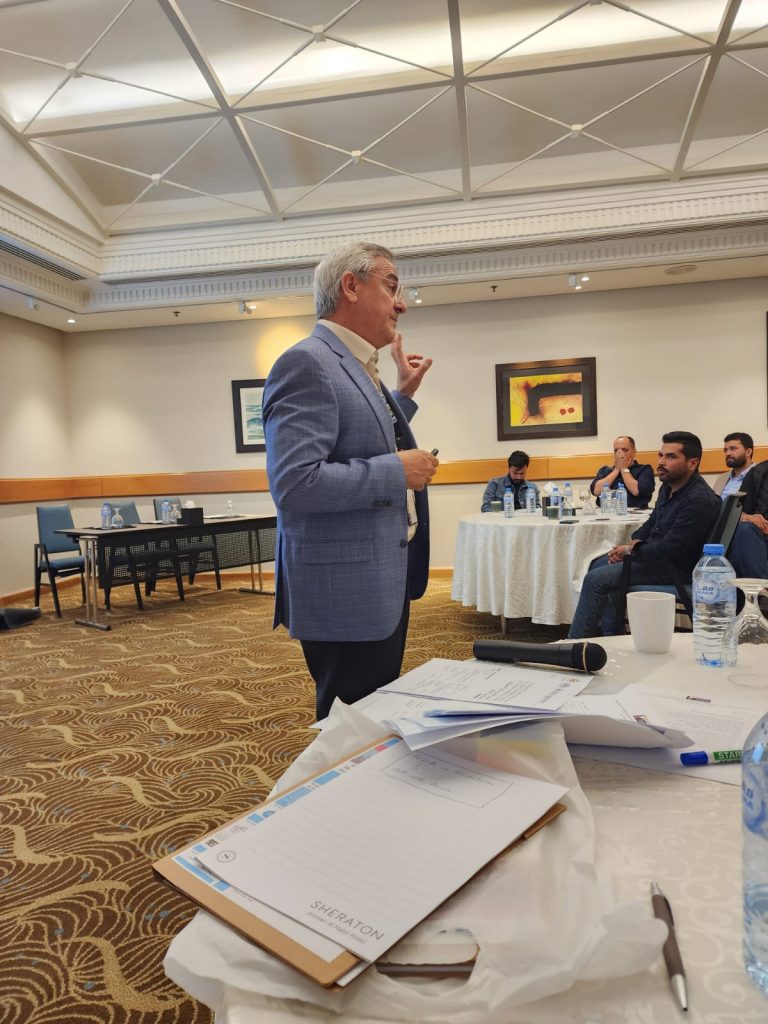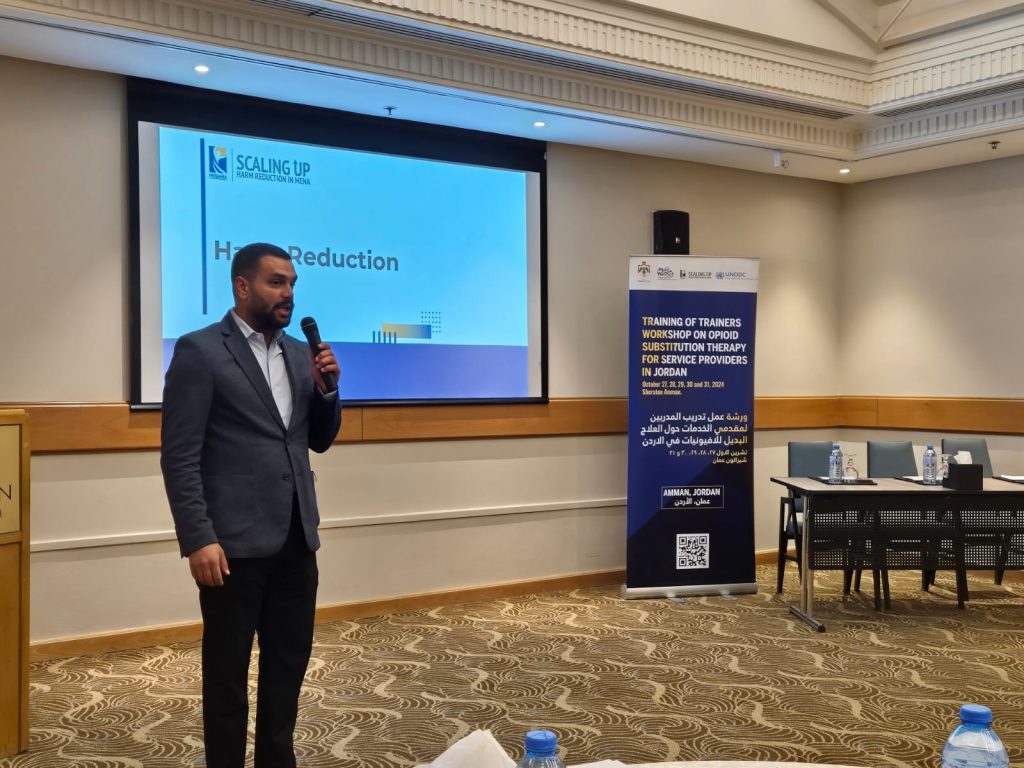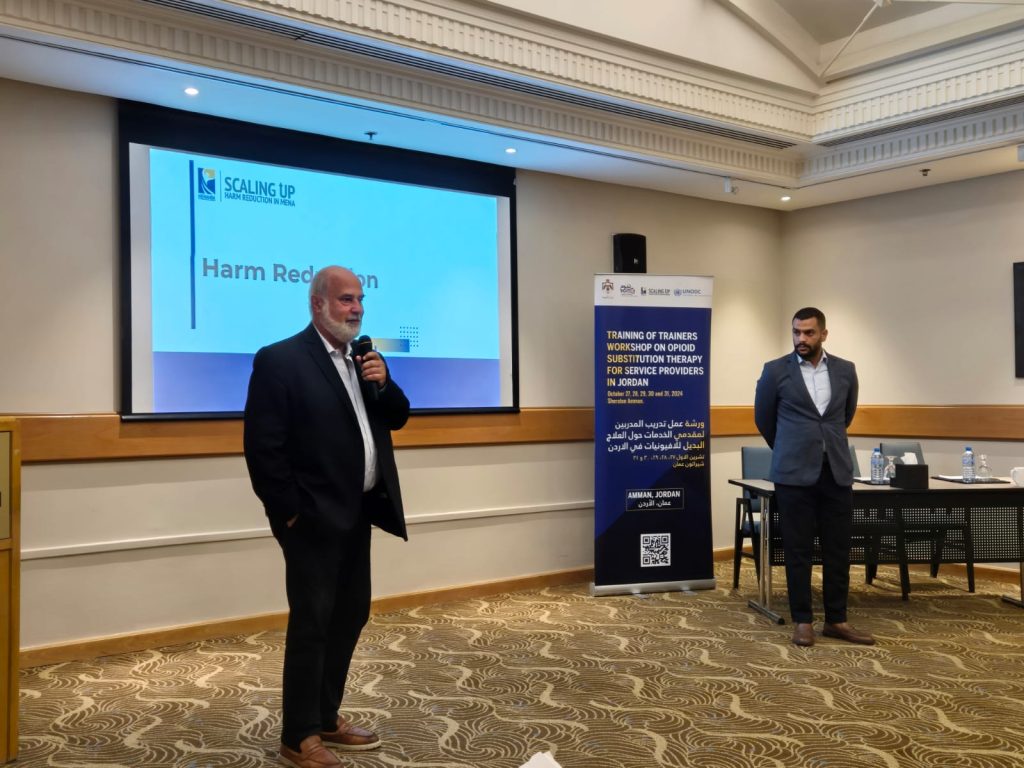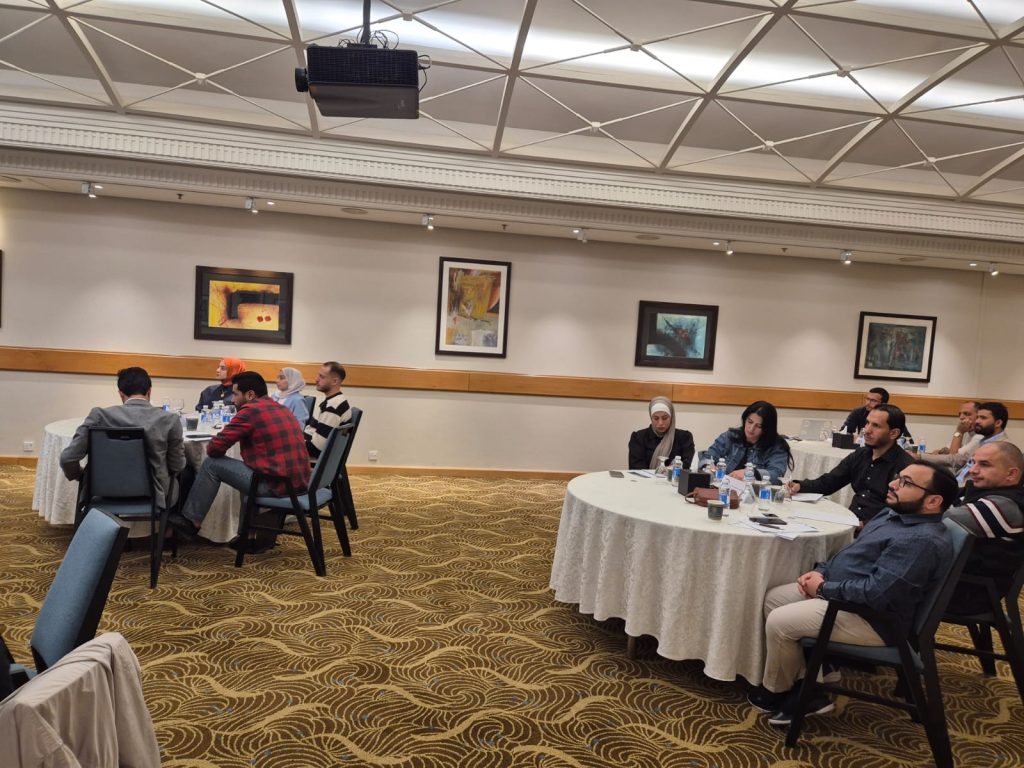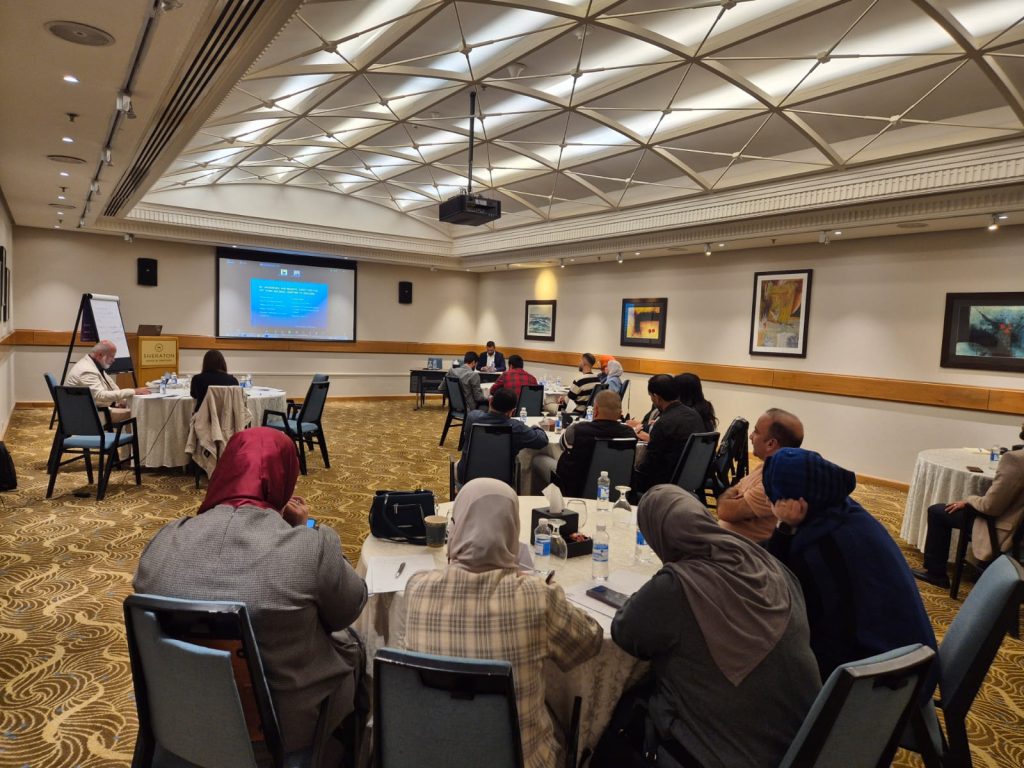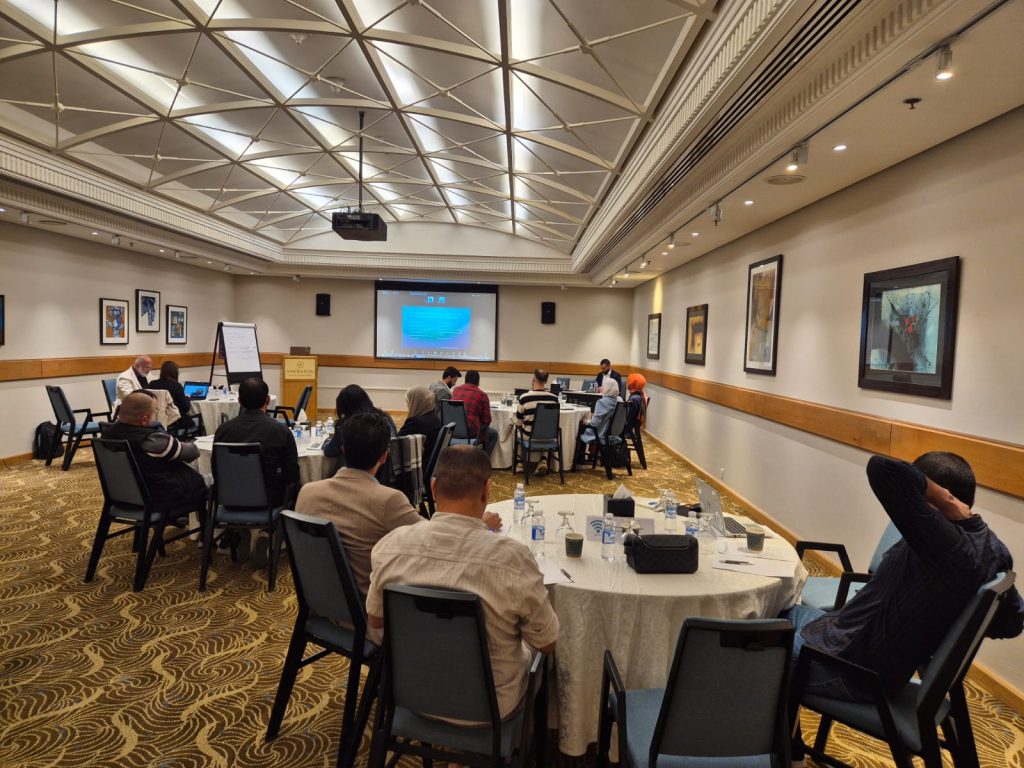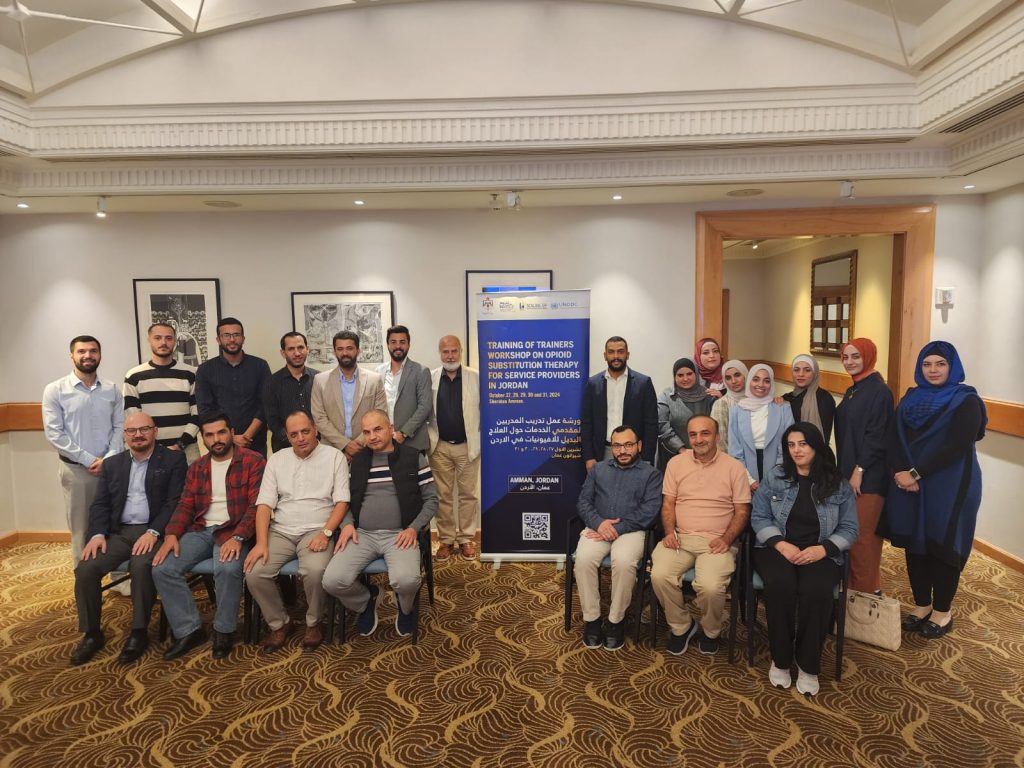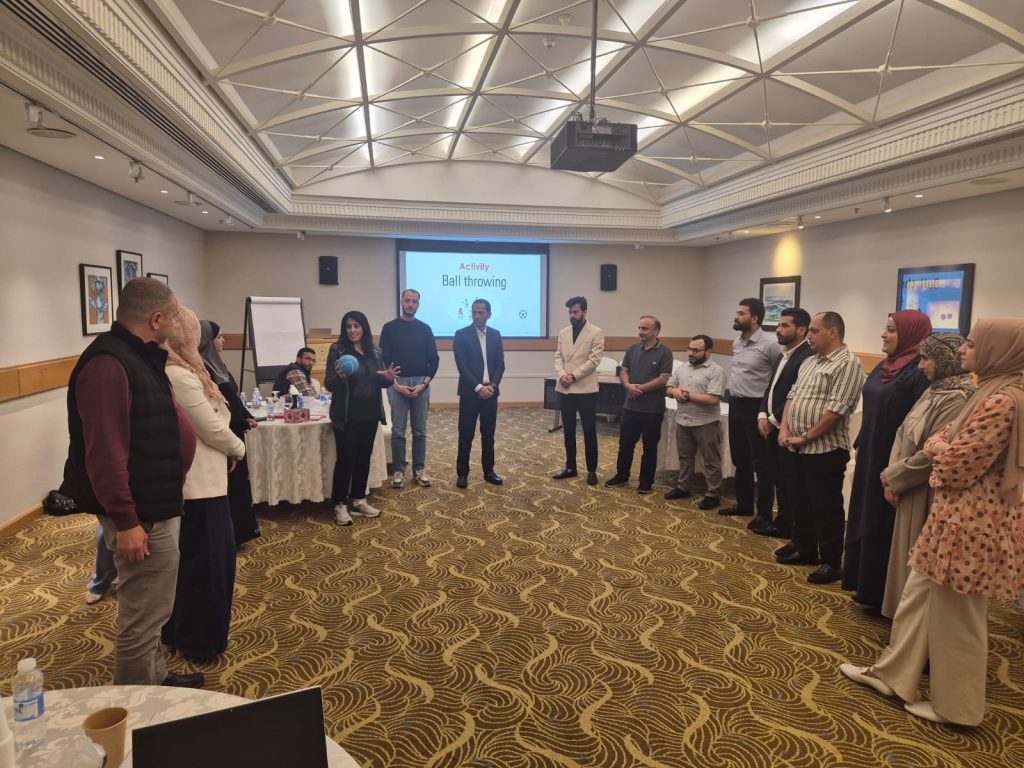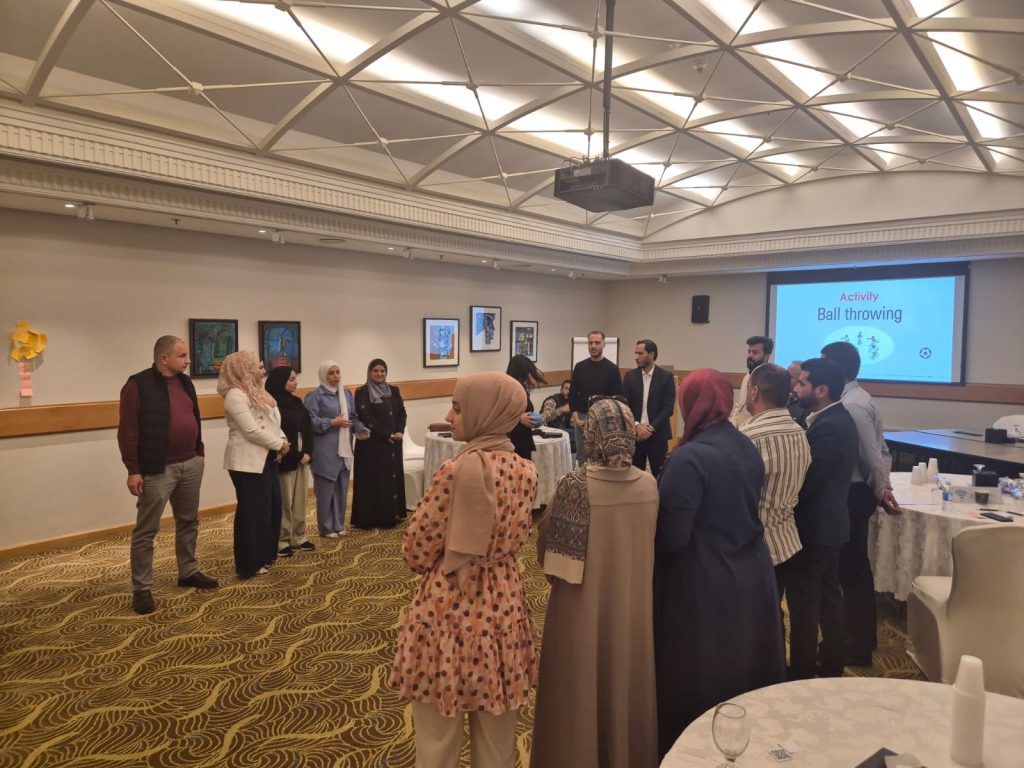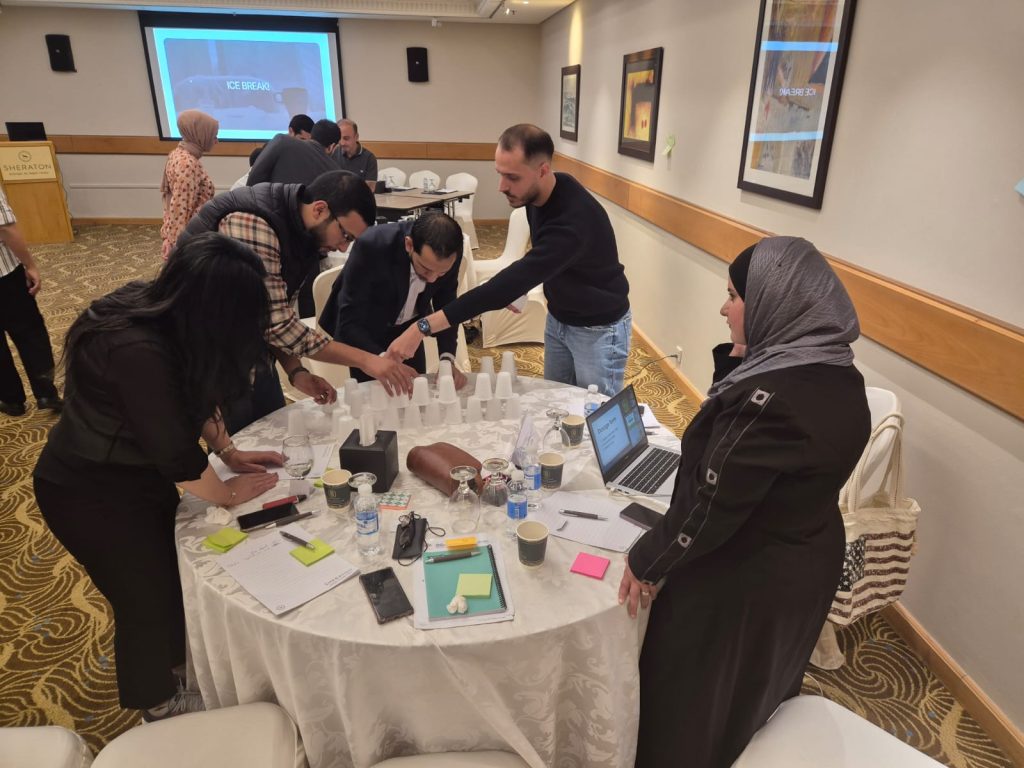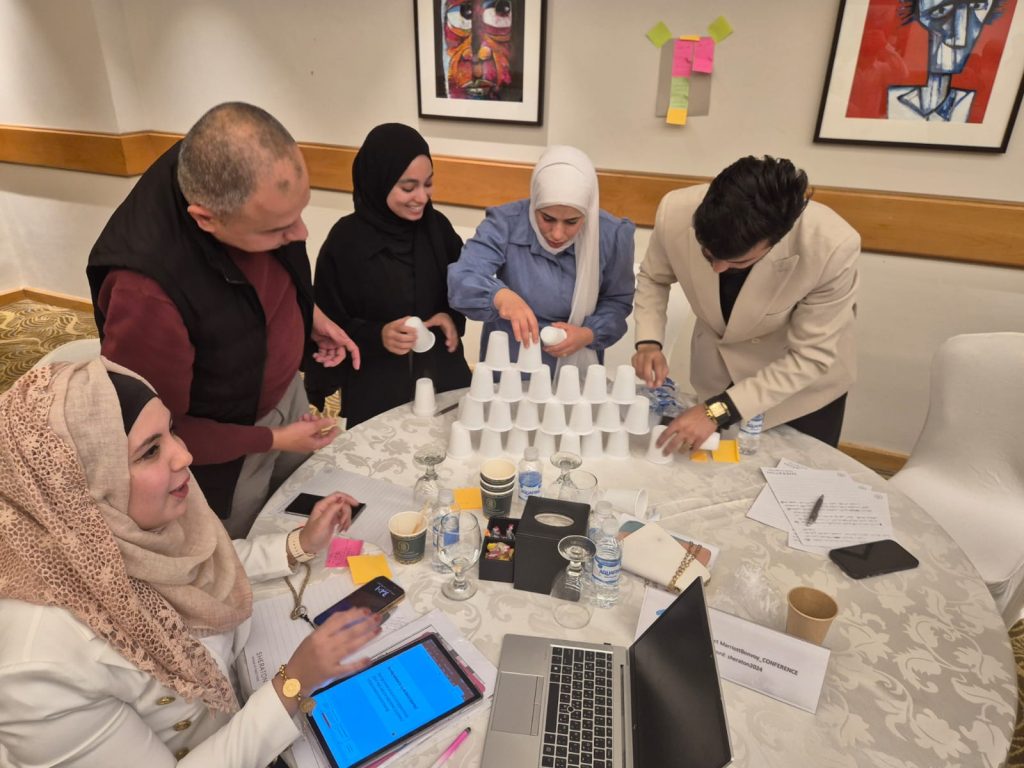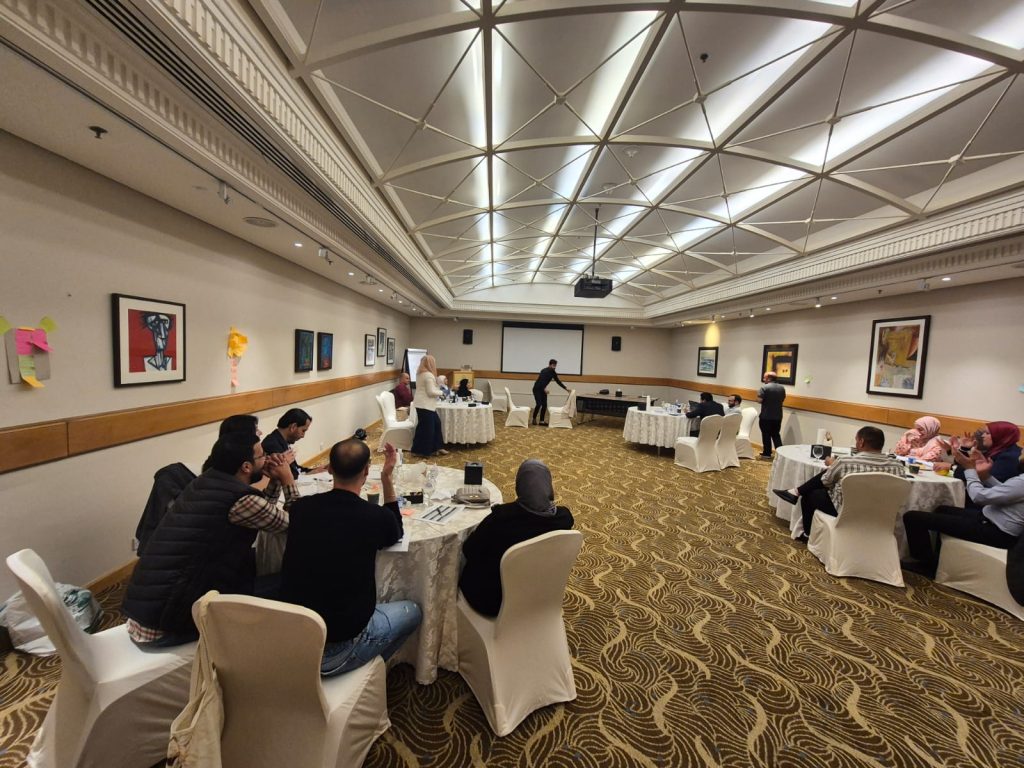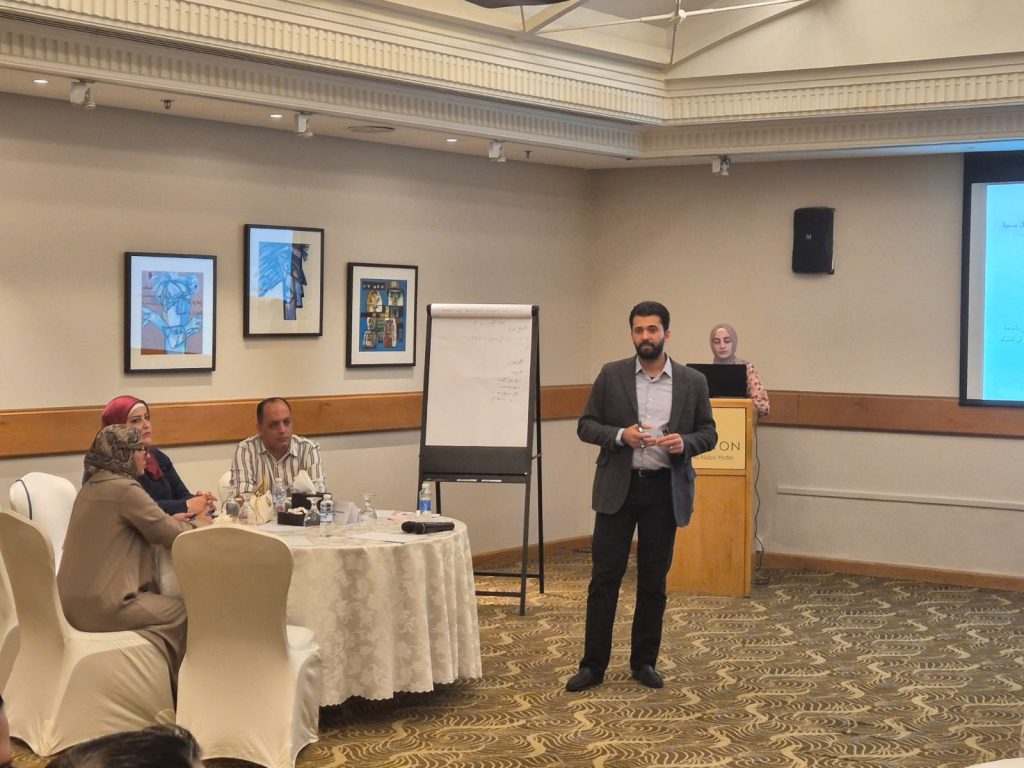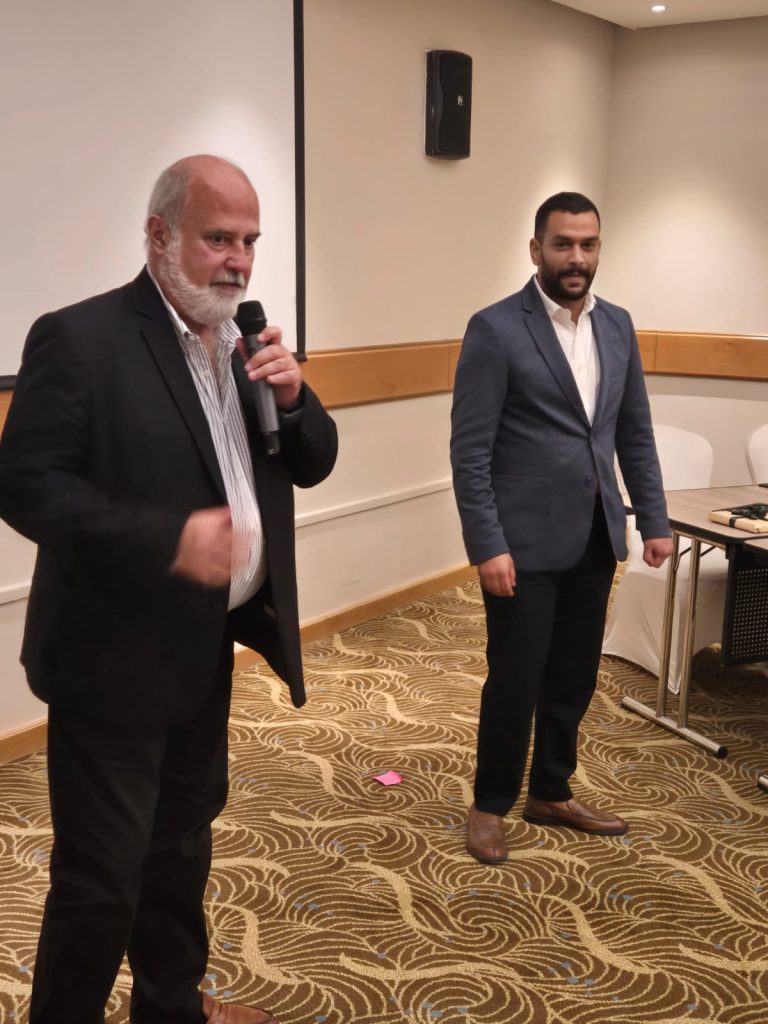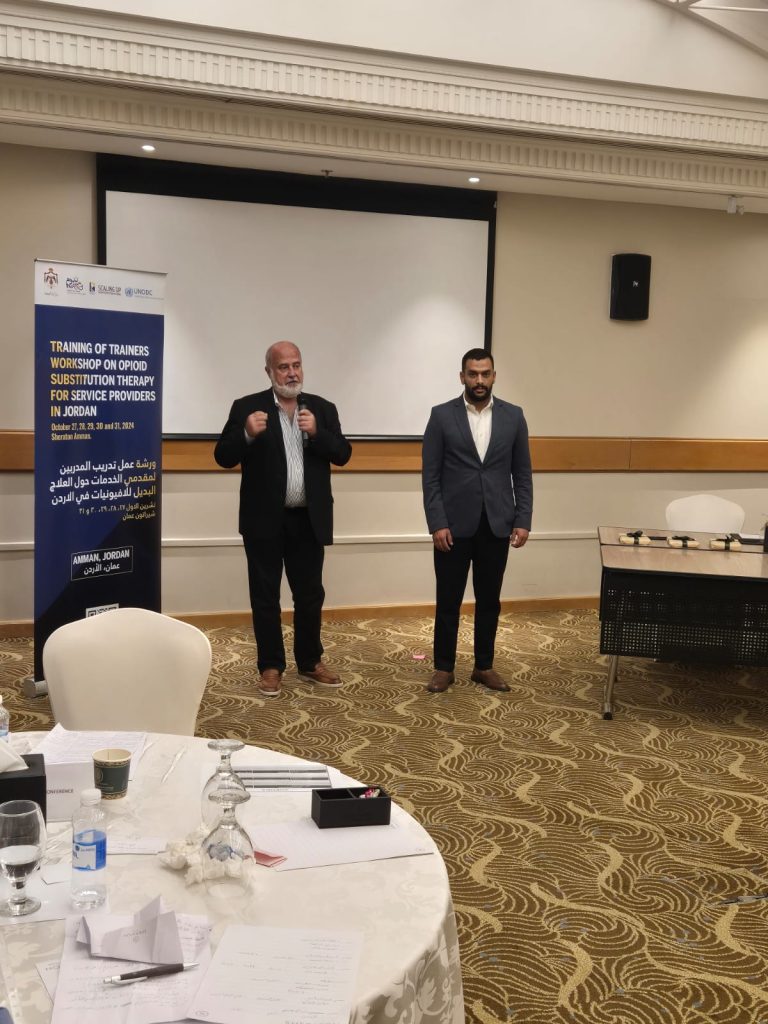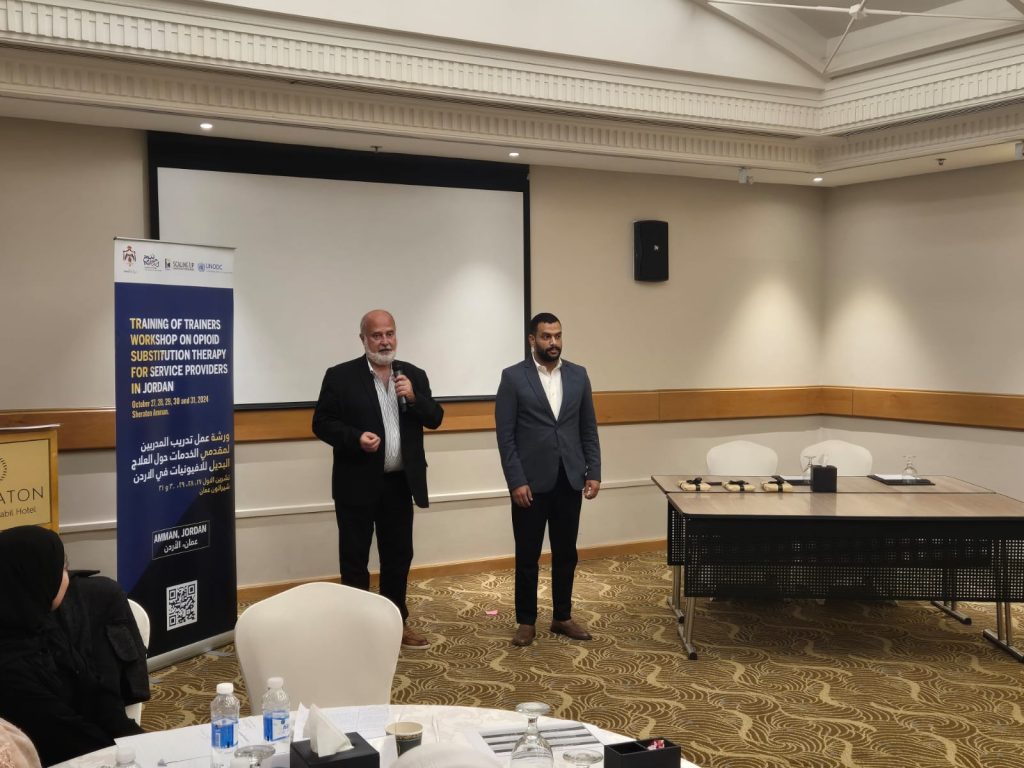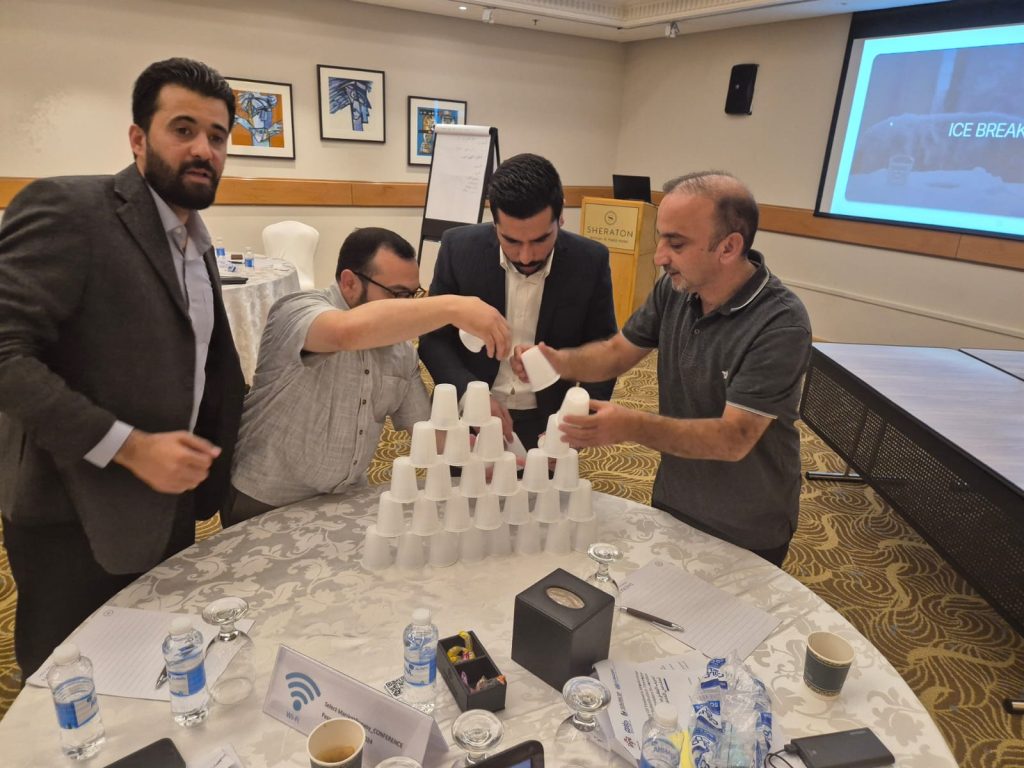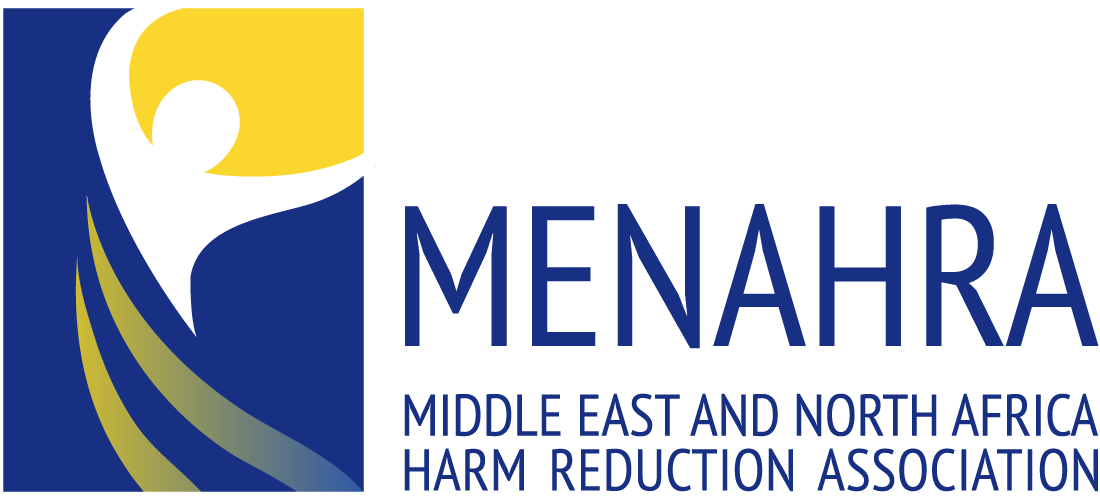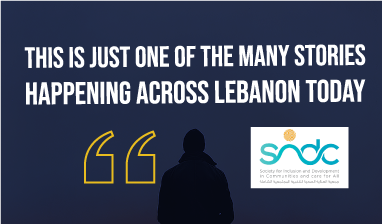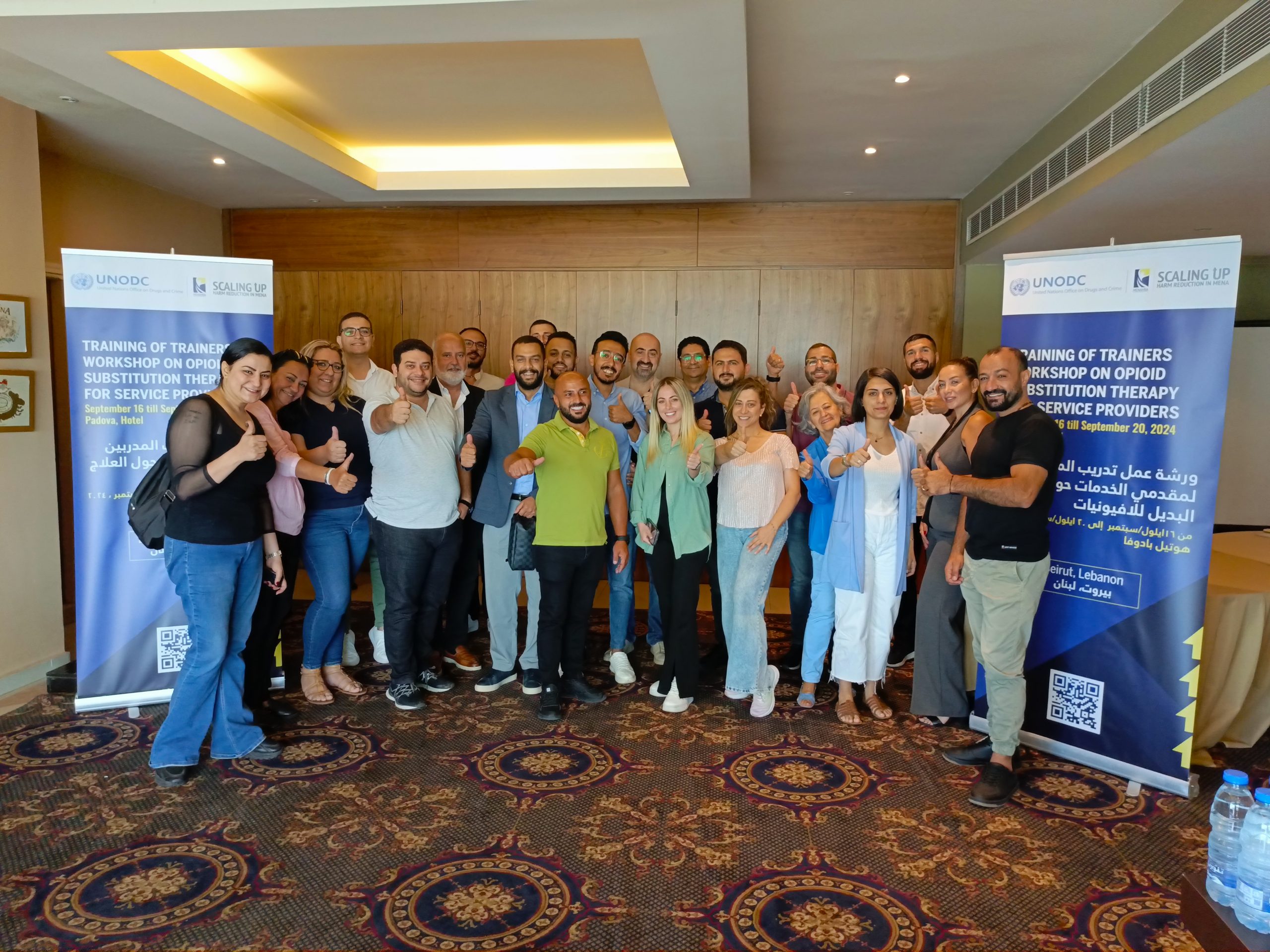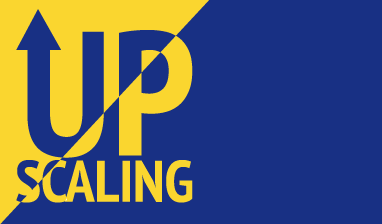Empowering participants to train service providers on the opioid substitution therapy program and to establish and enhance such programs within their institutions and organizations, The TOT program took place in-person in Sheraton hotel in Amman, Jordan from the 27th until the 31 of October 2024, the program was designed to support a total of 18 participants.
This program aimed to gain and enhance their knowledge and skills related to opioid substitution therapy programs, develop fundamental facilitation skills, including effective communication, session planning, session management, creating a conducive training environment, and using interactive training techniques, and to build confidence in training service providers on opioid substitution therapy programs.
Staff Members Involved
The sessions were expertly facilitated by professionals from Dr. Joseph El Khoury, Consultant Adult Psychiatrist, OST practitioner and harm reduction advocate and Dr. Ahmad Hunaiti, head of the addiction center, Consultant and Mr. Khalil Alotoum, a confirmed senior trainer in communication skills and training of trainers.
Mr. Amjad Malaeb guided closely the development of training preparation process and delivered a session introducing MENAHRA work and harm reduction on the first day.
Topics Covered and Training modules
The ToT program have the following topics were addressed:
Training Module 1: Opioid substitution therapy
- Developments in Harm Reduction
- An overview of Addiction
- The history and ideology behind treating opioid addiction.
- Overview of OST Practice and Guidelines
- The Future of OST
- Advocacy in Practice
Training Module 2: Training skills
- Introduction on interactive training approach
- Trainers’ roles and characteristics
- Planning a training session
- Facilitation skills including communication skills and session management.
Training Module 3: Skills Practice
- Simulation: Implementation and evaluation of training sessions
Training approach and methodology
The training approach adopted was participant centered. It focused on the needs of the participants and built on their knowledge and skills. The participants were involved throughout the training as partners in the learning process via sharing of their expectations and linking these to the training outcomes, providing space to sharing experiences, using interactive training techniques, building training sessions plans and simulating their roles as future trainers.
During the second half of the second day, a visit to the national addiction center was conducted to show participants of the how is being done.
Furthermore, due to the skill-based nature of the training, the simulation sessions were designed to evaluate the participants’ facilitation skills. Each participant had the opportunity to simulate their future role as a trainer for 10 minutes.
MENAHRA team and the trainers deployed their capacities to ensure stimulating and positive learning environment throughout the 5-day training.
Lessons Learned & Closure Session
The participants were highly engaged and cooperative throughout the training. Additionally, they put in considerable effort in preparing for the simulation sessions, which were delivered in a positive and enjoyable atmosphere.
At the end of the training program, Mr. Khalil alotoum thanked the participants for their engagement. Then Mr. Elie Aaraj briefed the participants on the harm reduction programs in Holland. This intervention was followed by the distribution of certificates of participation to the participant.
